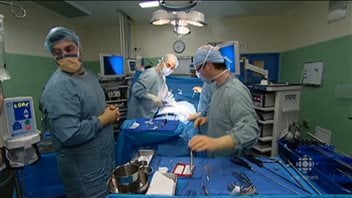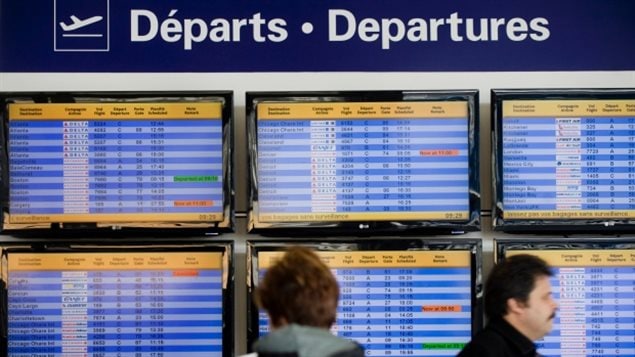“Medical tourism” is a term and a phenomenon that is becoming more and more common in Canada. It’s the idea of travelling outside of Canada to receive medical treatment, either for cost reasons, or for faster treatment
Jeremy Snyder (PhD) is a bioethicist and an associate professor in the Faculty of Health Sciences at Simon Fraser University in west coast British Columbia. He has helped to create a website discussing the ethical issues surrounding medical tourism.
Listen
Although Canada is considered to have a first rate, and “universal” health care system accessible to all Canadians regardless of income, many Canadians are choosing to go abroad for treatments.
Although numbers aren’t known, it is thought that a substantial number of Canadians every year leave to have medical (or dental) treatment performed in countries like the US, Mexico, India, and many others.
The reasons are varied but often it’s because people choose to avoid the often very long waiting list for an operation at a Canadian hospital for quick access to the operation at a foreign location.
An example is a gastric bypass operation where the waiting list in Canada can be from 3-5 years, whereas going to another destination where you can buy your way into an operation means an almost immediate procedure.

There may also be a cost incentive for some types of surgeries not covered by the Canadian medicare system, or it may be because certain experimental treatments are just not approved and performed in Canada.
While most people return satisfied with their foreign operation, some have found they have complications from infections at the location, or operations that were not done properly.
This raises an ethical issue of putting a far greater burden on the Canadian system to “repair” damage or cure infections from abroad, than had the original procedure been performed in Canada
As a side issue, some patients have found their Canadian doctors very reluctant to help them if they have complications from operations abroad.
Another ethical issue is whether it is fair to residents of that foreign country to have Canadian foreigners coming in to take up operating space in their hospitals.
Jeremy Snyder says the purpose of the new website set up is not to judge, or to take a pro or con stance on the debate, but rather to facilitate a discussion and reflection on the various issues involved with people who may be considering medical tourism.

It should be noted that there is another side to medical tourism.
A limited number of Canadian hospitals admit wealthy patients from abroad in order to raise revenue.
Canadian medical standards are very well respected internationals and many wealthy foreigners are willing to pay for that added “security “ in surgeries. The hospitals such as the University Hospital Network University (UNH) offers this possibility but doesn’t actively solicit, while the Sunnybrook Health Sciences of Toronto recently adopted an “international patient programme” to encourage the practice.
The UNH includes Toronto General Hospital, Toronto Western Hospital, Toronto Rehabilitation Institute, and the Princess Margaret Cancer Centre.
All of this of course raises great concern in Canada about a so-called “two-tiered” health care system, putting wealthy (foreigners in this case) in line ahead of Canadians creating even longer wait times in the already over-burdened health care system.







For reasons beyond our control, and for an undetermined period of time, our comment section is now closed. However, our social networks remain open to your contributions.